As the world becomes increasingly aware of the pressing need to protect the environment, individuals and industries seek eco-friendly alternatives in their daily activities. One area where we can make a significant difference is in our car washing habits.
Traditional car wash methods often involve harmful chemicals and excessive water usage, contributing to water pollution and environmental degradation.
In this blog, we will talk about why using an eco-friendly method when washing your car is important. We will also share some easy tips to clean your vehicle while being mindful of the environment.
Key Points:
- The Environmental Impact of Conventional Car Wash Methods
- Eco-Friendly Car Wash Techniques and Products
- Water Conservation in Car Washing
- DIY Eco-Friendly Car Wash: Step-by-Step Guide
- Benefits of Eco-Friendly Car Wash Practices
- The Environmental Impact of Conventional Car Wash Methods:
Traditional car washes that rely on commercial detergents and excessive water usage can harm the environment. The runoff from these washes carries harmful chemicals, oil, and grease into storm drains, ultimately contaminating rivers, lakes, and oceans.
Additionally, the amount of water used in these car washes is often excessive, leading to water wastage when water scarcity is a growing concern.
Eco-Friendly Car Wash Techniques and Products:
Regular car wash detergents usually have strong chemicals that can hurt the environment by polluting water and harming plants and animals living in it. To minimize the environmental impact of your car wash routine, consider the following alternatives:
1. Biodegradable Car Wash Soaps
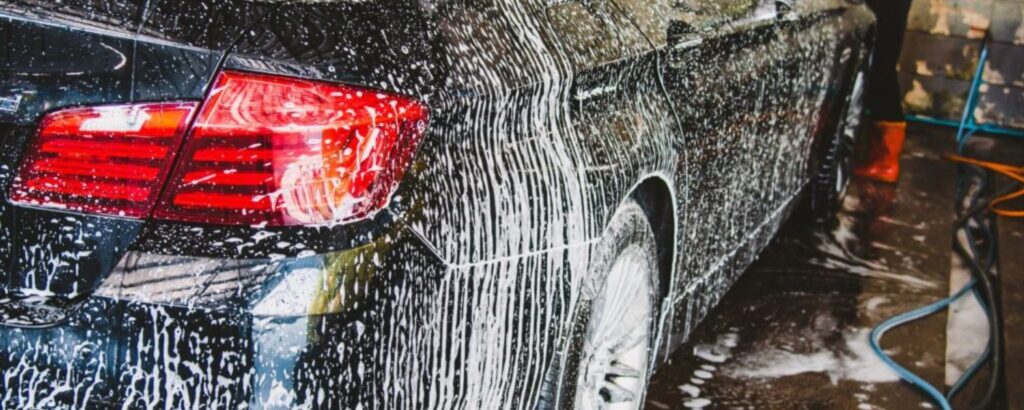
Look for car wash soaps labeled as biodegradable or eco-friendly. These products are formulated using natural ingredients that break down safely in the environment, reducing their impact on water systems and aquatic life.
2. Homemade Cleaning Solutions

Using household ingredients, you can also create eco car cleaners. For example, mixing vinegar, water, and small dish soap can effectively remove dirt and grime from your car’s surface. Be sure to test any homemade solution on a small inconspicuous area before applying it to the entire vehicle.
3. Avoid Phosphates and Nitrates

When choosing cleaning products, check the label to ensure they do not contain phosphates or nitrates. These chemicals contribute to water pollution and can harm aquatic ecosystems.
4. Water Conservation in Car Washing
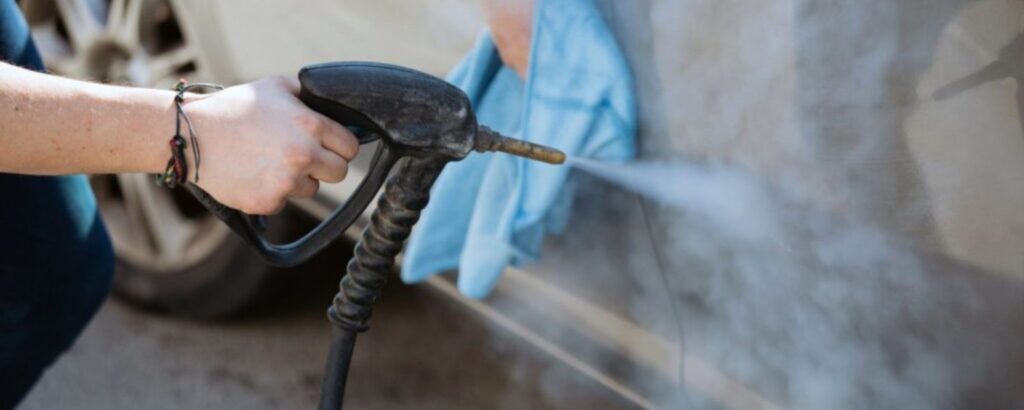
Water scarcity is an issue that affects many regions around the globe. To combat this, eco-friendly car washing emphasizes water conservation. Techniques such as waterless car wash products and rinseless wash methods significantly reduce water consumption, helping to preserve this precious natural resource.
DIY Eco-Friendly Car Wash: Step-by-Step Guide:
Here’s a step-by-step guide for a DIY eco-friendly car wash:
1. Find an Appropriate Location

Park your car on a grassy or gravel surface instead of a paved driveway. This allows water to soak into the ground rather than run into storm drains.
2. Gather Eco-Friendly Supplies

Use biodegradable car wash soap, a bucket of water, and a sponge or microfiber cloth. Don’t use strong chemicals that can hurt the environment.
3. Pre-Rinse With a Bucket

Fill a bucket with water to wet your car before applying soap. This helps remove loose dirt and reduces the amount of soap needed.
4. Use a Sponge or Cloth

Take your sponge or cloth, dip it into the soapy water, and gently scrub your car’s outside. Begin at the top and move downwards as you clean. Rinse the sponge frequently in the bucket to avoid spreading dirt.
5. Rinse Efficiently

Instead of using a high-pressure hose, use a low-flow nozzle or a watering can to rinse off the soap. This saves water and prevents excessive runoff.
6. Clean the Wheels and Tires

Use a separate sponge or brush to clean the wheels and tires. These areas often have built-up grime and require extra attention.
7. Dry With a Microfiber Cloth

After rinsing, use a microfiber cloth to dry your car. It absorbs water effectively and reduces the chances of water spots forming.
8. Properly Dispose of Wastewater
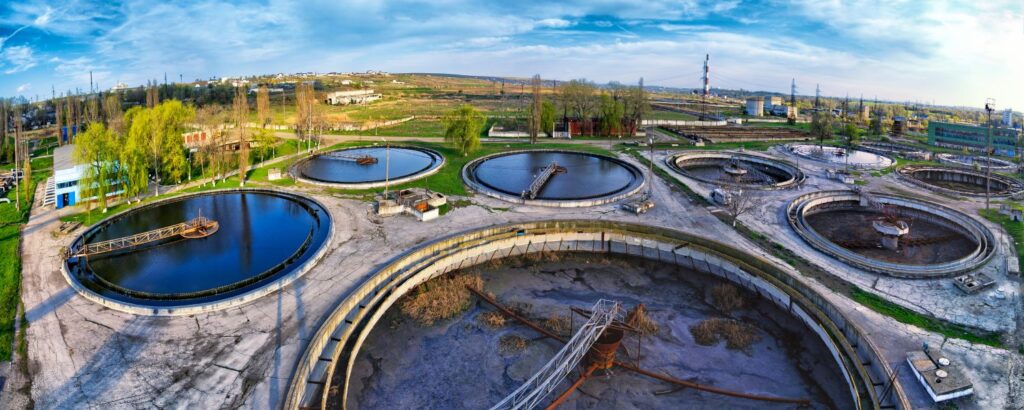
If any soapy water runoff remains, collect it in a bucket and dispose of it down a sink or toilet. Avoid letting it flow into storm drains, leading to water pollution.
Benefits of Eco-Friendly Car Wash Practices:
There are several benefits to adopting eco-friendly car wash practices:
1. Water Conservation
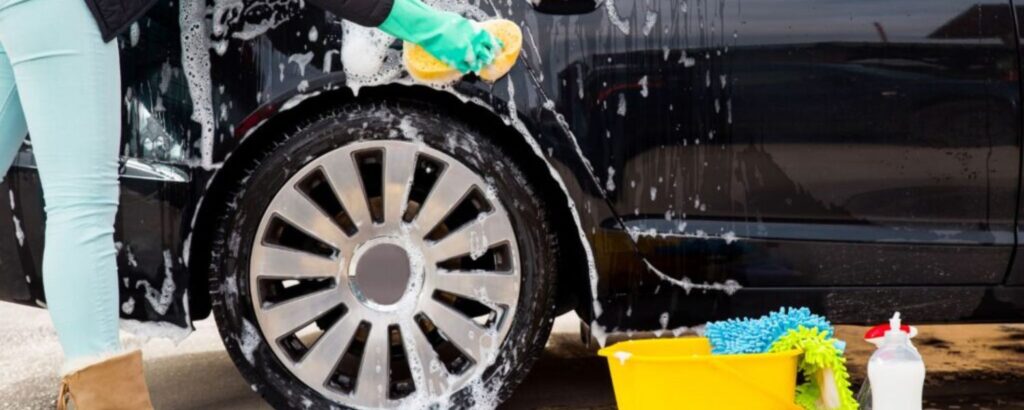
Eco-friendly car wash methods typically use less water than traditional car washes. By reducing water consumption, you help conserve this valuable resource
2. Environmental Protection

Eco-friendly car wash products are designed to be biodegradable and less environmentally harmful. They minimize the release of chemicals and pollutants into waterways, preserving aquatic ecosystems.
3. Healthier Air Quality
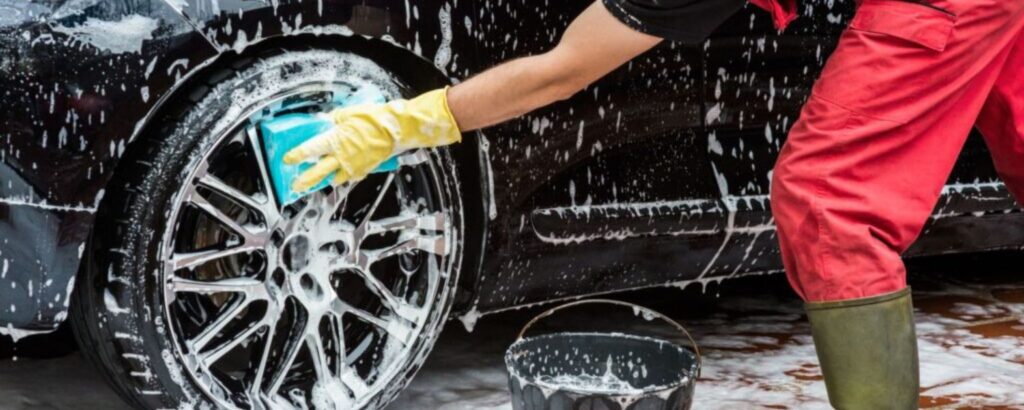
Traditional car washes often involve harsh chemicals that emit volatile organic compounds (VOCs) into the air. Eco-friendly practices utilize less toxic products, resulting in cleaner air quality.
4. Reduced Water Pollution
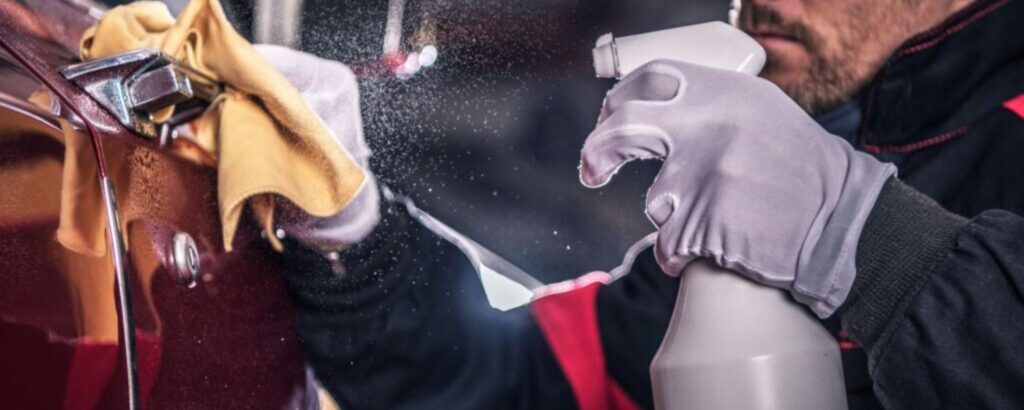
Eco-friendly car washes prevent pollutants, such as oil, grease, and soap, from entering storm drains and ultimately contaminating rivers, lakes, and oceans. This helps maintain water quality and protects aquatic life.
5. Cost Savings

Eco-friendly car wash methods can save you money in the long run. By using less water and more efficient products, you reduce your water bill and minimize the need for costly repairs caused by harsh chemicals.
6. Personal Well-Being
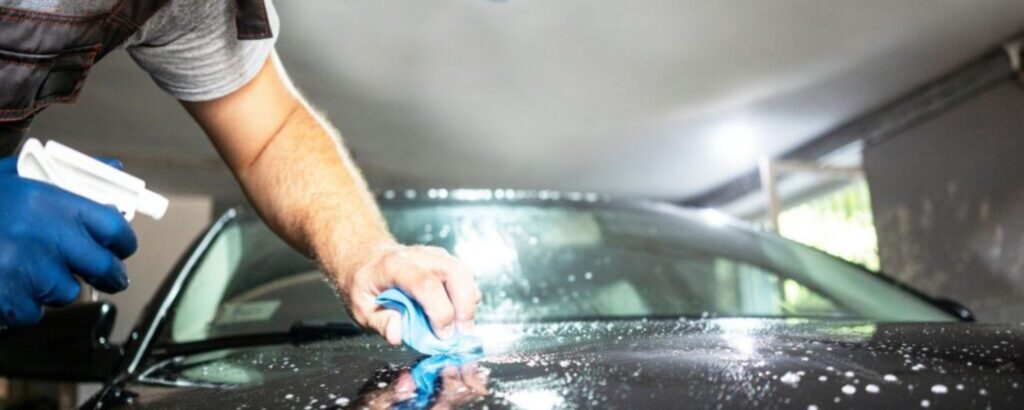
Eco-friendly car wash products are generally safer for your health, as they contain fewer harmful substances. This means less exposure to potentially toxic chemicals during the car cleaning process.
Final Words
Adopting an eco-friendly car wash routine is not only beneficial for the environment but also for our well-being. We can significantly reduce our ecological footprint by conserving water, choosing environmentally friendly cleaning products, and utilizing proper waste disposal methods.
Small changes in our car wash habits can substantially impact the planet, contributing to cleaner water sources and healthier ecosystems. Embracing sustainable practices ensures a cleaner and greener future and sets an example for others to follow.
Let’s commit to cleaning our vehicles without harming the environment and drive towards a more sustainable future.

